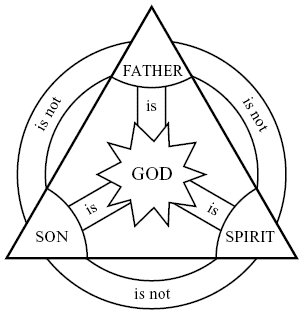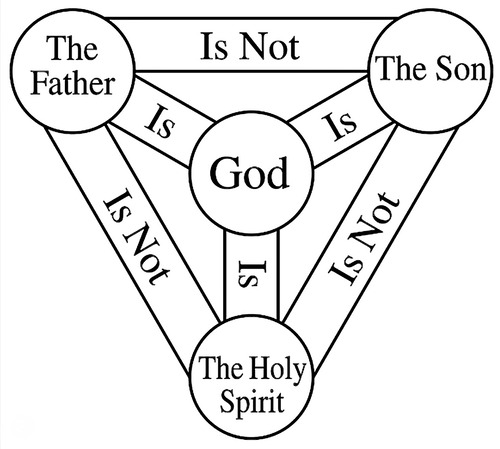Why Is God Jealous for His Glory? Does That Make Him Selfish?
“For the LORD, whose name is Jealous, is a jealous God” (Exodus 34:14)
A jealous God? Doesn’t jealousy suggest insecurity, pettiness, or perhaps, selfishness? How do we reconcile God’s demand for exclusive worship with His perfect love?
These questions strike at the heart of how we understand God’s character. If God is truly loving, why does He seem so concerned with receiving glory? And if He demands our worship, doesn’t that make Him selfish by definition?
Far from being selfish, God’s jealousy for His glory actually demonstrates His perfect love—both for Himself as the infinitely worthy One, and for us as His beloved people. Understanding this transforms how we view worship, idolatry, and the very nature of our relationship with God.
WHY IS GOD JEALOUS? WHAT SCRIPTURE ACTUALLY SAYS
Before we can address whether God’s jealousy is selfish, we must understand what Scripture means when it describes God as jealous. The Hebrew word qanna, translated as “jealous,” carries the sense of passionate, zealous commitment—not the petty envy we associate with human jealousy.
Scripture repeatedly declares this aspect of God’s character. “I the LORD your God am a jealous God” (Exodus 20:5). “He is a holy God; he is a jealous God” (Joshua 24:19). “The LORD your God is a consuming fire, a jealous God” (Deuteronomy 4:24). The New Testament echoes this theme: “He yearns jealously over the spirit that he has made to dwell in us” (James 4:5).
But what exactly is God jealous for? Scripture reveals three key areas:
- His rightful worship and honour: God tolerates no rivals because no rivals exist. He alone created all things, sustains all things, and deserves all glory.
- His people’s exclusive devotion: Like a faithful husband who rightfully expects fidelity, God expects our undivided hearts because He has given us His.
- Our acknowledgment of His supreme worth: God’s jealousy isn’t about getting something He lacks, but about receiving recognition of what He actually is—infinitely glorious and worthy.
This biblical jealousy is fundamentally different from human jealousy, which typically stems from insecurity, fear, or wanting something that belongs to another.
WHY THIS ISN’T SELFISH: THE NATURE OF PERFECT BEING
The charge of selfishness assumes God is seeking something He doesn’t deserve or demanding honour that rightfully belongs to another. But this fundamentally misunderstands who God is.
God’s Glory is Objective Reality: When God declares, “My glory I will not give to another” (Isaiah 48:11), He’s not making an arbitrary demand—He’s stating a fact about reality. God’s glory isn’t something He decided to claim; it’s what He inherently possesses as the Creator and Sustainer of all things.
Consider this analogy: If the sun “demands” to be called bright, it’s not being selfish—it’s simply bright. Its radiance isn’t arrogance but reality. Similarly, when God seeks His own glory, He’s not being selfish but truthful. As Paul declares, “For from him and through him and to him are all things. To him be glory forever” (Romans 11:36).
The Difference Between Human and Divine “Selfishness”: Human selfishness seeks undeserved honour, takes credit for what others have done, or demands recognition beyond our actual worth. We grasp for glory because we lack it.
God operates from the opposite position. He possesses infinite worth, infinite beauty, infinite goodness. He created everything that exists and sustains it moment by moment. He lacks nothing and deserves everything. When He seeks glory, He’s not grasping for something beyond His worth—He’s simply being true to what He is.
The Westminster Shorter Catechism captures this perfectly: “Man’s chief end is to glorify God and to enjoy Him forever.” We were created for this purpose because God is infinitely glorious and worthy of our complete devotion.
God’s Perfect Nature Requires Perfect Response: As the infinitely worthy One, God deserves infinite honour. Anything less than total devotion is actually an injustice—a failure to acknowledge reality. When we give ultimate love to anything other than the ultimate Being, we’re living a lie.
This isn’t arbitrary divine ego; it’s moral reality. The perfectly good, perfectly beautiful, perfectly powerful Being deserves perfect recognition. To demand less would actually be a failure of justice and truth.
DOES IT DISPLAY LOVE FOR HIS PEOPLE?
Here we reach the heart of the matter. God’s jealousy for His glory isn’t competing with His love for us—it is His love for us expressed in its highest form.
God’s Jealousy Protects Us from Idolatry: “You shall not go after other gods, the gods of the peoples who are around you—for the LORD your God in your midst is a jealous God” (Deuteronomy 6:14-15). This isn’t divine insecurity speaking; it’s divine protection.
Idolatry always leads to human degradation. When we worship created things instead of the Creator, we inevitably become enslaved, diminished, and harmed. Money becomes a harsh master. Power corrupts. Even good things like family or career become destructive when they take God’s place in our hearts.
God’s jealousy functions like a loving spouse protecting the marriage from adultery—not because He needs our faithfulness for His own well-being, but because unfaithfulness destroys what He lovingly created.
Directing Us to Our Greatest Good: “In your presence there is fullness of joy; at your right hand are pleasures forevermore” (Psalm 16:11). Our highest happiness is found in God alone. Every lesser love, when made ultimate, disappoints and destroys.
God’s jealousy lovingly redirects us from pursuing satisfaction in things that cannot satisfy. He jealously guards our hearts against false gods not because He’s insecure, but because He knows where true joy is found—in Himself.
This is like loving parents who “jealously” guard their child from harmful substances. The parent’s restriction isn’t selfish—it flows from knowledge of what will truly benefit the child.
The Cross as Ultimate Expression: The supreme demonstration that God’s jealousy flows from love is found at the cross. “For our sake he made him to be sin who knew no sin, so that in him we might become the righteousness of God” (2 Corinthians 5:21).
God’s jealousy for His glory led Him to the ultimate sacrifice. His justice demanded payment for sin—our idolatry and failure to give Him proper honour. But His love provided the payment through Christ. At the cross, God’s glory and our salvation are perfectly united, not opposed.
The cross proves God’s jealousy isn’t selfish ambition but sacrificial love. He maintained His righteous standards while paying the price to restore us to Himself.
Our Transformation for Our Benefit: God’s ultimate goal isn’t just to receive glory but to share it. “And we all, with unveiled face, beholding the glory of the Lord, are being transformed into the same image from one degree of glory to another” (2 Corinthians 3:18).
We are “fellow heirs with Christ” (Romans 8:17), destined to share in the glory we were created to give. God’s jealousy for His glory becomes our inheritance and joy. He jealously guards His glory not to hoard it, but to eventually share it with those He loves.
PRACTICAL IMPLICATIONS: LIVING UNDER GOD’S LOVING JEALOUSY
Understanding God’s jealousy as love transforms our relationship with Him. Worship becomes not a burdensome duty but a joyful response to infinite beauty and worth. As the psalmist declares, “Whom have I in heaven but you? And there is nothing on earth that I desire besides you” (Psalm 73:25).
God’s jealousy also frees us from the tyranny of false gods. “If the Son sets you free, you will be free indeed” (John 8:36). When we understand that God alone deserves ultimate devotion, we’re liberated from the impossible burden of finding ultimate meaning in finite things.
WHY IS GOD JEALOUS? PERFECT LOVE DEMANDS PERFECT HONOUR
God’s jealousy for His glory isn’t selfish—it’s the most loving thing He could do. Because He is infinitely worthy, He lovingly insists we find our joy in Him rather than in lesser things that will ultimately fail us. Because He is perfectly good, He rightfully claims the honour that belongs to Him alone.
Far from being a character flaw, God’s jealousy reveals His perfect love both for His own infinite worth and for our highest good. In demanding exclusive worship, He offers us exclusive joy. In claiming all glory, He invites us to share it forever.
WHY IS GOD JEALOUS? RELATED FAQs
What did John Piper mean by “God’s passion for His glory”? Piper argues God’s supreme commitment to His own glory is actually the foundation of His love for us, not a contradiction to it. In his book “God’s Passion for His Glory,” he explains God loves us by helping us find our greatest joy in what is most glorious—Himself. God’s self-exaltation and our satisfaction aren’t competing interests but the same thing, because we were created to find our deepest happiness in God’s infinite worth.
- How do we explain the difference between God’s jealousy and ours? RC Sproul emphasised human jealousy typically stems from envy—wanting something that belongs to another or that we don’t deserve. God’s jealousy, however, flows from His holiness and represents His righteous intolerance of anything that challenges His supreme worth. In “The Holiness of God,” Sproul argues that for God not to be jealous for His glory would actually be a moral failing, since He alone deserves ultimate honour and worship.
- How did John Calvin view God seeking His own glory? Calvin taught God’s pursuit of His own glory is perfectly righteous because God is the only being who deserves infinite honour. In his “Institutes,” Calvin argues God cannot give His glory to another without denying His own nature—it would be like asking the sun to stop shining. Calvin saw God’s jealousy as an expression of justice, not selfishness, since God is simply claiming what rightfully belongs to Him as Creator and Sustainer of all things.
How did Jonathan Edwards connect God’s glory to human happiness? Edwards argued in “The End for Which God Created the World” that God’s glory and human happiness are perfectly aligned because we were created to find joy in God Himself. He taught that God created the world primarily for His own glory, but this serves human good because our greatest happiness comes from knowing, loving, and glorifying our Creator. Edwards saw no tension between God’s self-regard and His love for creatures—both flow from His perfect nature.
- Is there a difference between God’s “jealousy” and God’s “zeal”? The Hebrew word qanna can be translated as either “jealous” or “zealous,” and both capture important aspects of God’s character. God’s zeal emphasises His passionate commitment to what is right and good, while His jealousy specifically focuses on His demand for exclusive worship and devotion. Both terms describe the same divine attribute—God’s intense, righteous commitment to maintaining His proper place as the supreme object of love and worship.
- How does the Trinity relate to God’s jealousy for His glory? God’s jealousy for His glory operates perfectly within the Trinity, where each Person seeks to glorify the Others. The Father glorifies the Son (John 17:1), the Son glorifies the Father (John 17:4), and both send the Spirit to glorify the Son (John 16:14). This mutual glorification within the Godhead demonstrates God’s pursuit of glory is not selfish competition but perfect love expressed within His triune nature. The Trinity shows us that seeking glory and giving glory can be the same act when done in perfect love.
What’s the difference between God’s jealousy in the Old Testament versus the New Testament? While the language of divine jealousy appears more frequently in the Old Testament, the concept remains consistent throughout Scripture. The Old Testament emphasizes God’s jealousy in the context of Israel’s covenant relationship and their tendency toward idolatry. The New Testament reveals the ultimate expression of God’s jealous love through Christ’s sacrifice—God’s jealousy for His glory led Him to provide the way for sinners to be reconciled to Himself. Both testaments show God’s jealousy serves His people’s good, though the New Testament more fully reveals how this works through the gospel.
WHY IS GOD JEALOUS? OUR RELATED POSTS
Editor's Pick
SUPPORT US:
Feel the Holy Spirit's gentle nudge to partner with us?
Donate Online:
Account Name: TRUTHS TO DIE FOR FOUNDATION
Account Number: 10243565459
Bank IFSC: IDFB0043391
Bank Name: IDFC FIRST BANK






